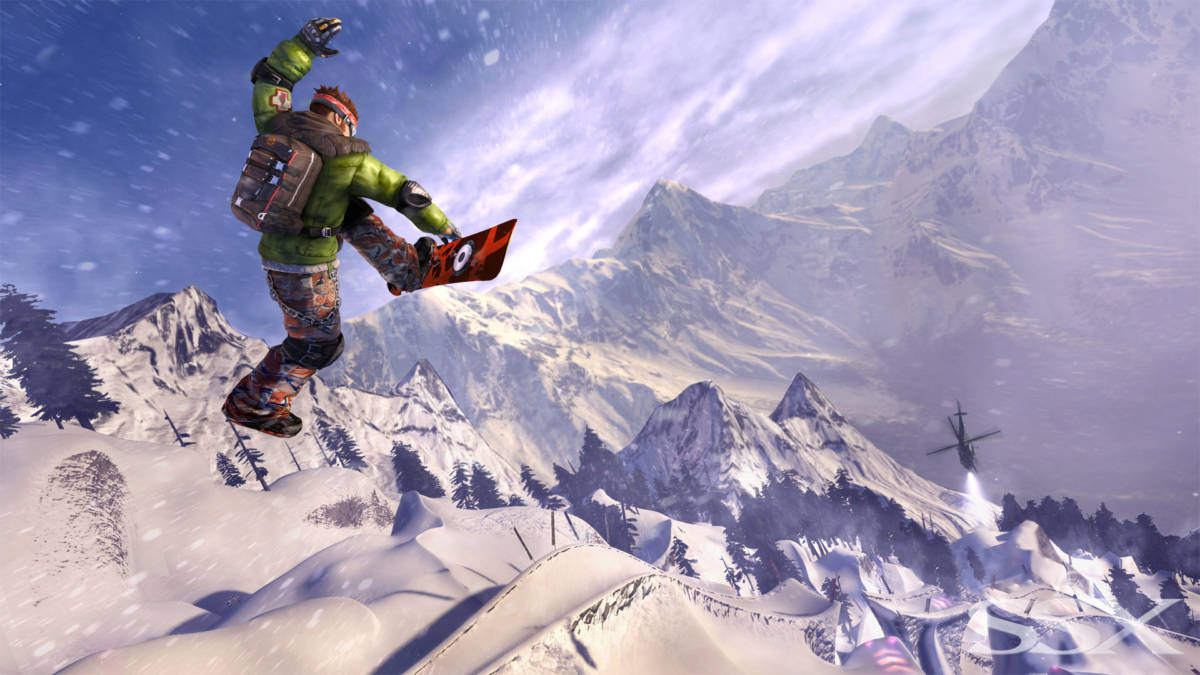If I were to say the words “EA Sports BIG” to you, you’d likely start rapping the chorus to Run DMC’s It’s Tricky, thanks to the cultural significance of SSX Tricky’s opening cutscene and soundtrack. That, or you’d quote the intro to Def Jam Vendetta. Both are equally viable, but both franchises have disappeared off the face of the earth in recent years. For Def Jam, the reason is obvious (ta, Def Jam: Icon), but for SSX, the reasoning is a bit more unclear.
It’s been nearly a decade since the last SSX game, and there’s been almost no indication at all from EA that a new one is coming. With spiritual successors and imitators emerging over the years, it’s also worth considering if there would even be a place for SSX in the gaming landscape if it did make a comeback. Today, we’re asking the question: will we ever see a new SSX game?
The History of SSX
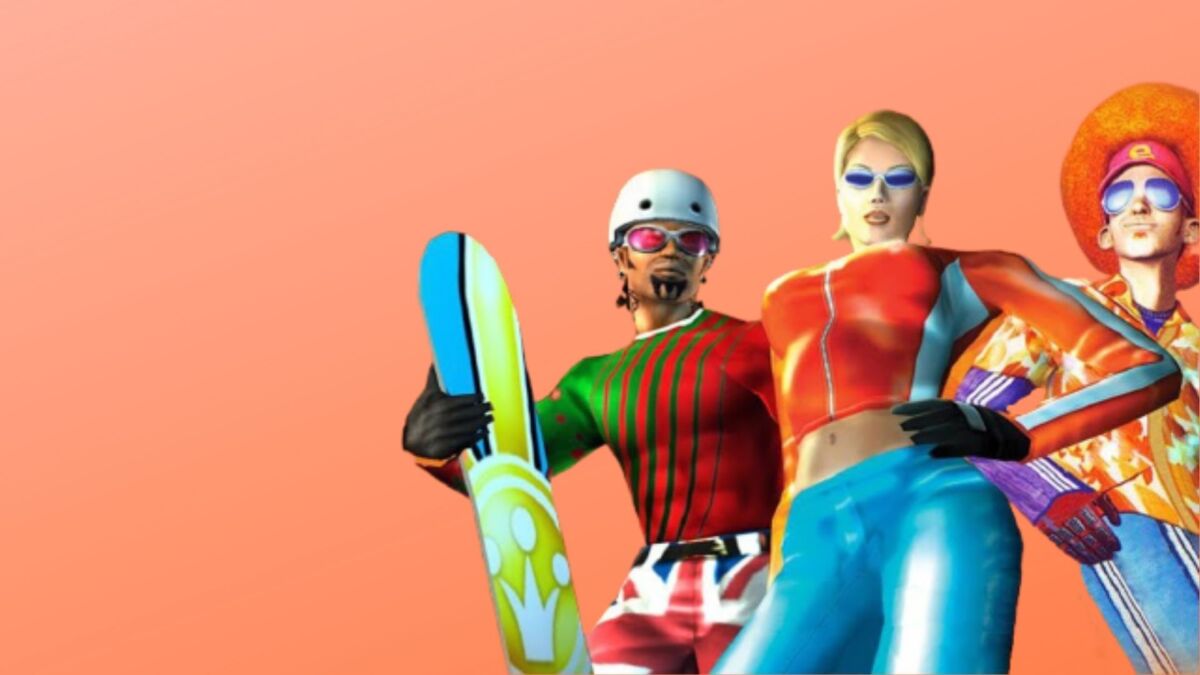
The origins of SSX actually come from the world of snowboarding itself, though this isn’t going to be some kind of history lesson on the overall sport. Instead, we’ll talk about Steven Rechtschaffner, a former competitive skier turned TV producer, who worked with Greg Stump, a noted ski and snowboarding filmmaker, to create Greg Stump’s World of Extreme for FOX TV in 1991.
The show needed a great final segment, so Rechtschaffner pitched an idea that had been floating around in his head for years: A sport that went on to be called boardercross. The concept isn’t too dissimilar to motorcycle motocross racing, with a focus on maintaining control at high speed amidst complex, demanding courses, hence the name.
After the airing of World of Extreme on FOX TV, along with the subsequent MTV Sports repeats, boardercross became quite the hit, with other groups across both North America, Canada and even Australia hosting their own boardercross events. Rechtschaffner even attended a lot of these early events to teach those in attendance how to build effective tracks. Boardercross later became an Olympic event under the Snowboard Cross, making its debut at the Torino Winter Olympics in 2006. However, Boardercross inspired its own legacy before then with SSX.
In 1994, Rechtschaffner joined Electronic Arts, where he rose through the ranks to become a creative director and executive producer. Rechtschaffner then became the driving force behind the EA Sports Big label, and to do so, he leveraged his prior experience working on World of Extreme and the creation of boardercross to create SSX. When speaking to USGamer back in 2018, Steve talked about the first formation of SSX:
“Having always been involved with action sports as an interest, I worked with skateboarders, snowboarders in the past, been a skier, I just loved that sort of thing and thought it was underserved in the game space. I started working on building an engine that could create a convincing snowboard experience. My approach to the whole thing was trying to build it at an arcade or Nintendo-level quality, and really making it about fun, not about being a simulation. But having great physics and control, things that anybody could pick up and play but it would be hard to really master the game.”
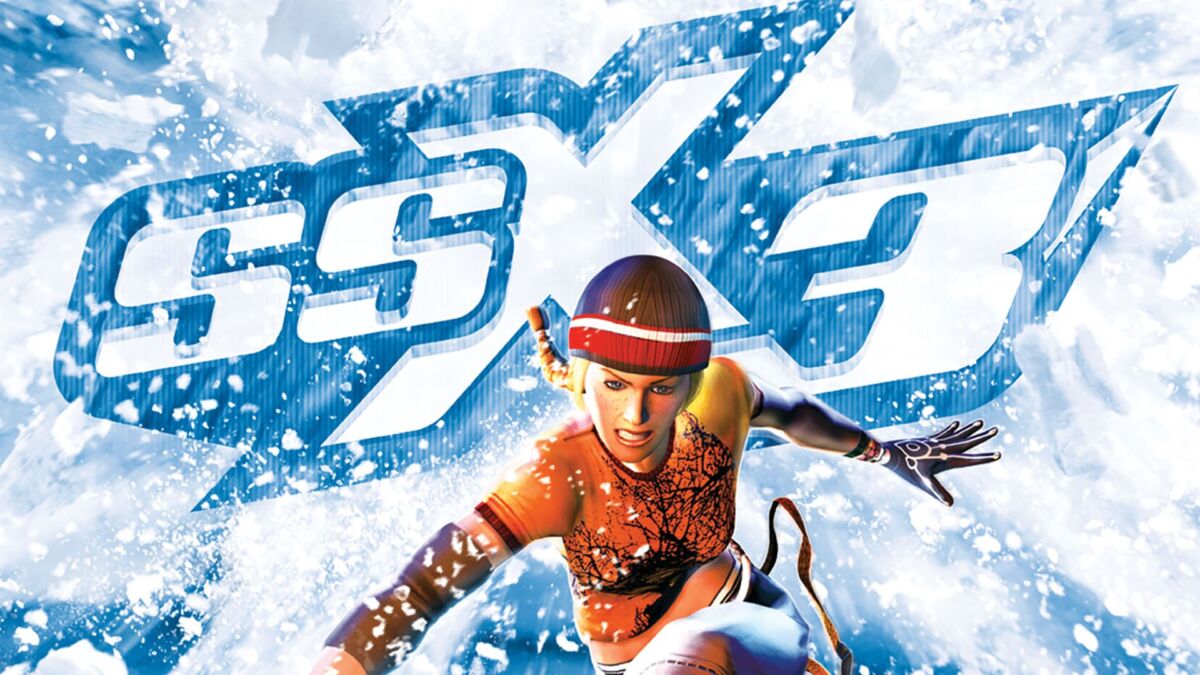
SSX was initially meant to be developed for the Dreamcast, but development moved over to the PlayStation after EA made the decision to pull away from SEGA’s console, a choice that proved to be an effective one for SSX. Sony were reportedly impressed with the game, so much so that they wanted SSX to be a launch title for the PS2, but according to Rechtschaffner, some higher-ups at EA weren’t so convinced early on:
“Early on as we were struggling with it, more than a few times people suggested I might just call it a day. But EA had a concept called ‘earning silver bullet:’ if you built a game that was successful, you earned a silver bullet, which meant you could build an idea forward. You had an opportunity to try something, even if you were to fail, as long as you were building on top of a success.”
Steve Rechtschaffner had accumulated a decent amount of silver bullets in his time at EA, having been the spearhead behind EA developing the Triple Play Baseball series, plugging a gap in EA’s portfolio. Because of this, SSX was allowed to proceed, and the rest is history. The first game launched in 2002, received a 93 on Metacritic, and is seen as one of the best games in history and the foundation for a legendary franchise. EA built on that success a year later with SSX Tricky, which will be celebrating its 20th anniversary just two days after this post goes live. Tricky was essentially an expanded version of the original game with more tracks and characters. Reviews were slightly less glowing than the first game, but the difference between 93 and 92 on Metacritic is splitting hairs.
Depending on who you ask, the SSX series had already reached its peak, or it was about to. With the EA Sports Big brand extending to the likes of NBA Street, the time was right for a new SSX. Confirmed in a trailer within NBA Street Vol. 2, SSX 3 redefined the snowboarding series by moving from separate tracks to one fully explorable mountain with three peaks. Players could combo their way from the top of peak 3 all the way to the base of peak 1, if they had the skill at least.
SSX 3 also revitalised the upgrading system, with the career mode allowing you to focus on one character’s abilities, instead of it being tied to a specific board. All of these changes turned out to be a godsend for the third installment in the series, as SSX 3 was the first game in the series to break the one million sales mark. It also went on to earn a 93 on Metacritic, which is incredibly impressive.
Unfortunately, that’s when the series began to go somewhat downhill, and that’s not just a snowboarding joke. Rechtschaffner took on a new role in EA that meant he couldn’t devote time to passion projects, and those projects he was trying to get off the ground or pitch were largely rejected or terminated. Ultimately, Steve left EA in the mid-2000s, and the EA Sports Big brand would go along with him.
As for SSX, it tried to keep its momentum going with SSX On Tour, which expanded on the formula of SSX 3 with a huge mountain to explore, multiple events to compete in and small challenges to complete dotted all over the mountain. The difference with SSX On Tour was that it allowed players to create their own characters and race against established SSX snowboarders, instead of picking your favourite from the roster. SSX On Tour launched in October 2005 and earned an 80 on Metacritic, which is still a sign of a great game, but is also indicative of a decline in quality.
What Happened To SSX?
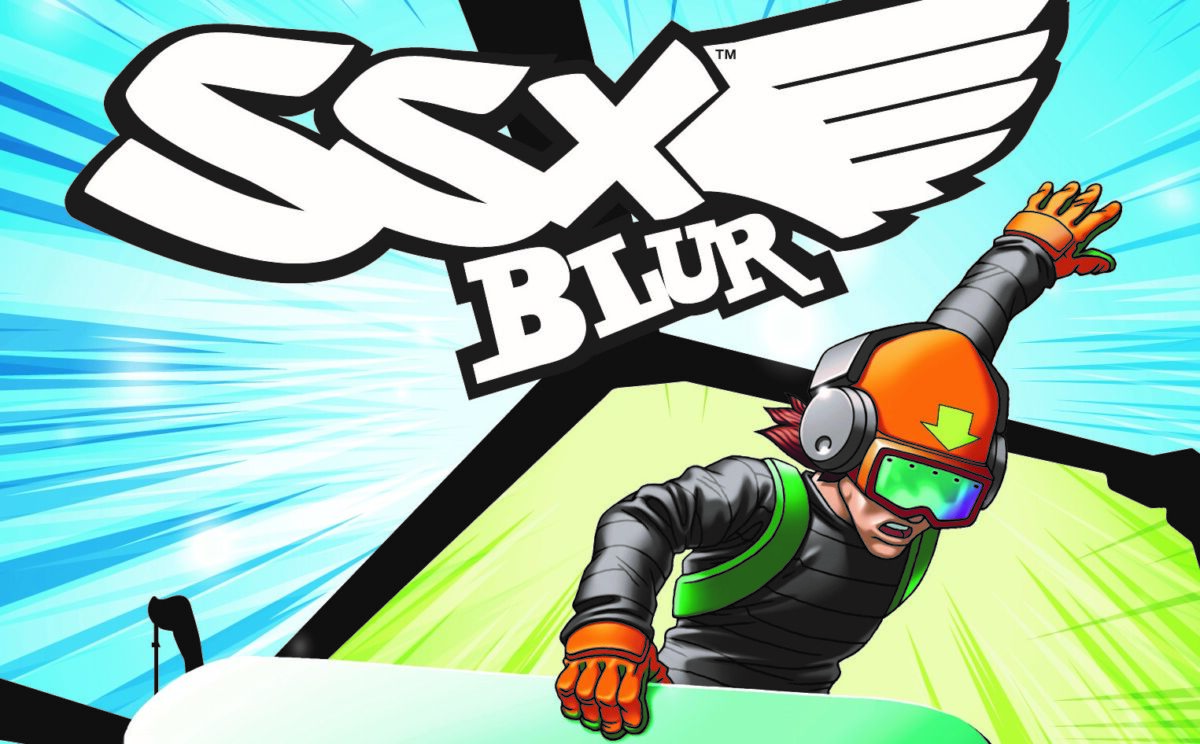
In order for a series to be revived, it first has to be killed off, and the game that had the honour of doing so was SSX Blur, a Wii exclusive title that proved to be the last game to ever use the EA Sports BIG label. Unfortunately, the legacy of EA’s boisterous label was tarnished by Blur, which is mostly regarded as the worst entry in the series.
Like most franchises in the mid to late 2000s, an effort was made to port SSX to the Wii. Blur utilised the Wii remote and nunchuk controllers for motion controls, as players attempted to navigate tracks composed of areas from both SSX 3 and On Tour. Quite clearly, this was a cobbled together effort to get something on Nintendo’s incredibly successful console, using some already created assets to do so.
Still, there was some potential in that formula, and reviewers agreed. SSX Blur earned a 74 on Metacritic, which is the worst in the series, but still a respectable score. Most reviewers came to the consensus that the motion controls were a bit finicky, and that the lack of new assets made Blur feel like a small-scale effort rather than a true SSX 5, so they were hopeful for a sequel that would improve on these issues. That sequel never arrived, and it’d take 5 years for SSX to be rebooted.
Even then, the reboot went through some issues. The sixth SSX game originally started life in a much darker place than the brightly coloured, over the top flamboyance that the series had become known for. Originally revealed as SSX: Deadly Descents during the Spike VGAs in 2010, the debut trailer showcased a more brooding tone for the iconic series, one that the fans quickly turned on. In response, EA “listened to the fans” and restored the series’ lighter tone.
Simply known as SSX, the new game dropped the Deadly Descents subtitle but kept their impact on gameplay. The World Tour mode saw the cast reunite to conquer 9 real world mountain peaks, each of which offering their own unique hazard to overcome, making them the so-called Deadly Descents. In order to overcome these challenges, players could equip various bits of equipment that’d make their lives much easier.
On top of World Tour mode, there was also an Explore mode that allowed players to take their time with the different mountains and tracks, and they could even leave Geotags for other players to collect, giving players the ability to interact with other players and earn rewards in a unique way. Honestly, a number of hours were spent leaving Geotags in hard to reach places instead of doing uni work, and, if nothing else, it was a few years ahead of Luigi’s Balloon Hunt in Super Mario Odyssey.
Reviews for SSX (2012) were the best that the series has seen since On Tour, with the game receiving an 82 on Metacritic. Reviewers enjoyed the return of the classic SSX gameplay, and the equipment added a neat extra wrinkle to the game’s overall make-up, but the lack of true online multiplayer was a serious knock for SSX. It still didn’t stop EA from bundling an Online Pass into the game in a veiled attempt to curtail the second-hand marketplace.
The Future of SSX
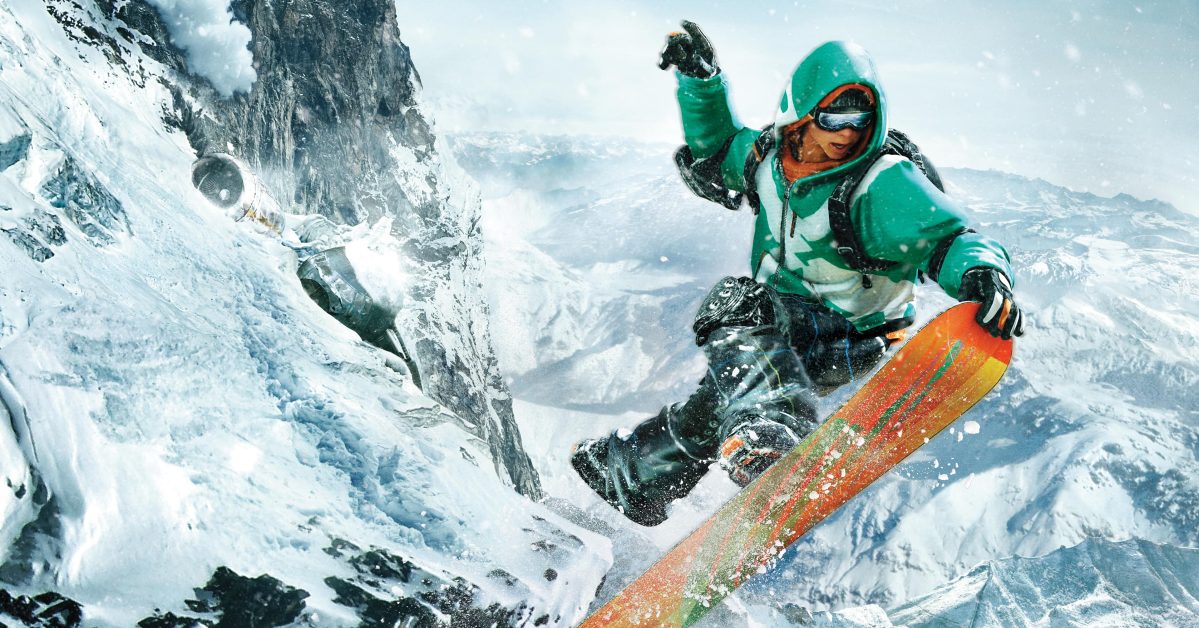
According to then-EA Labels president Frank Gibeau, we should have already seen a new SSX. Sales for SSX (2012) weren’t exactly astounding, but it was noted by Frank in an interview with CVG [archived by Engadget] that SSX had managed to outperform fellow reboot Syndicate, with Gibeau referring to SSX as “a very successful launch for us”. Not only that, but Gibeau concluded with this little nugget: “you’ll probably see more in the future.”
Nearly a decade later, and there’s been no indication that SSX would ever make a return, and sales might be a reason why. In a post back in 2014, VGU put forward two theories that might explain why sales were a factor, the first one being the dreaded online pass. The much-maligned feature, which saw players paying to play online if they bought a game second-hand (unless you got lucky and the code hadn’t been redeemed) was killed off not long after SSX’s release. Gibeau himself gave interviews about the subject only a year after speaking with CVG.
The other theory surrounds the 2012 turmoil that surrounded the UK-based retailer Game Group, who owned multiple chains like GAME and GameStation. Back in 2012, the company faced increased competition from online-based retailers, and rumours began to swirl about the company going into administration. While Game Group managed to secure a bank lender, it wasn’t enough to convince certain game suppliers, including EA, meaning games like Mass Effect 3 and, crucially, SSX, were harder to buy in the UK. If anything, the events normalised online-only purchasing even further, and GAME eventually went into administration.
Still, the near 10 year gap between games seems strange for a game that’s played such a huge part in the childhoods of many gamers around the world. It’s an absence that’s been noticed by Steve Rechtschaffner, who spoke to LadBible in 2020 about the possibility of remastering SSX Tricky in some way for a release on modern consoles. His response? He’d love to see it but it’s not up to him:
“Yeah, I think it could work. Xbox did a good job at re-releasing SSX 3 for Xbox One and it’s beautiful actually. It’s in the hands of EA because they own the intellectual property. I have contemplated what it would mean, whether to remaster or even reboot the series.You’re beholden to the expectations that people had from a long time ago. I easily think they could remaster [SSX] Tricky but there would be a tonne of work to be able to have live head-to-head competition and gameplay – just because the game wasn’t architected that way.”
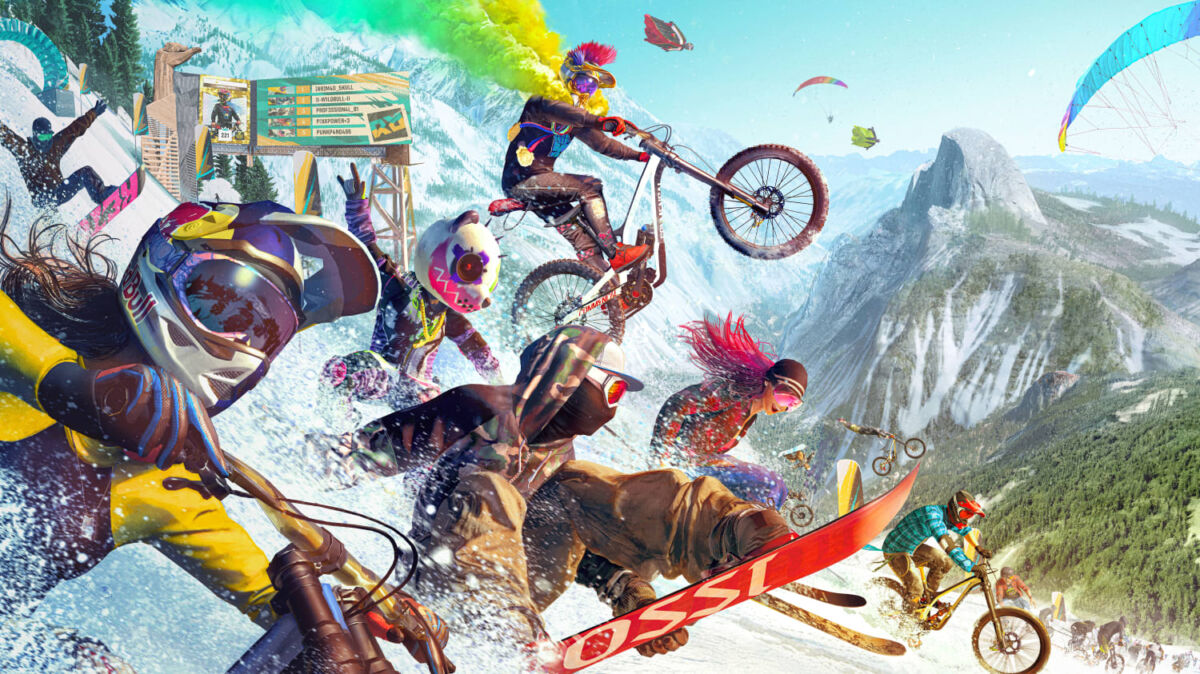
Instead of waiting for EA to hand him the reins to the SSX series, Steve went out and founded Supernatural Studios, who are working on a free-to-play, live service snowboarding game codenamed Project Gravity. Details are thin on the ground about his new game beyond that, but Steve notes in an exclusive interview with Laptop Mag that this is more than just a spiritual successor:
“We’re not nostalgic in the sense that we want to bring something back. If we were, we’d be working with EA to create a reboot of SSX. It’s not that at all. We don’t want to be beholden to people’s expectations of where that goes. But we do want to make this arcadey, amazing-feeling, very accessible, competitive and fun game.”
On top of Project Gravity, the snowboarding genre seems to be getting more and more crowded at the minute. Ubisoft’s Steep was a decent snowboarding/skiing stand-in, but now Riders Republic aims to bolster that with even more content and ways to go downhill fast. While there isn’t a huge selection of reviews available at the time of writing, initial reactions suggest a huge success for Riders Republic. On top of that, next year’s Shredders from Foam Punch Games looks to offer its own novel take on the snowboarding genre.
While a new SSX game will still likely draw more excitement than other games, the fact is that there’s less room now, and EA don’t appear to be interested in making sports games that can’t be either a) released annually, or b) monetised to all hell. I’m sure they could find some way to cram loads of cosmetic microtransactions into a new SSX game, but is that even something people would even want?
Still, EA’s announcement that they’re reviving the Skate franchise shows there’s still some love there for the extreme subculture, so it’s not outside the realms of possibility that a new SSX game could just appear in the next few years. Heck, it doesn’t even have to be new: Just slap SSX Tricky and SSX 3 into a HD bundle and call it a day. I’m pretty sure everyone would be cool with that.
READ MORE: Will We Ever See A New Burnout Game?
Some of the coverage you find on Cultured Vultures contains affiliate links, which provide us with small commissions based on purchases made from visiting our site.
